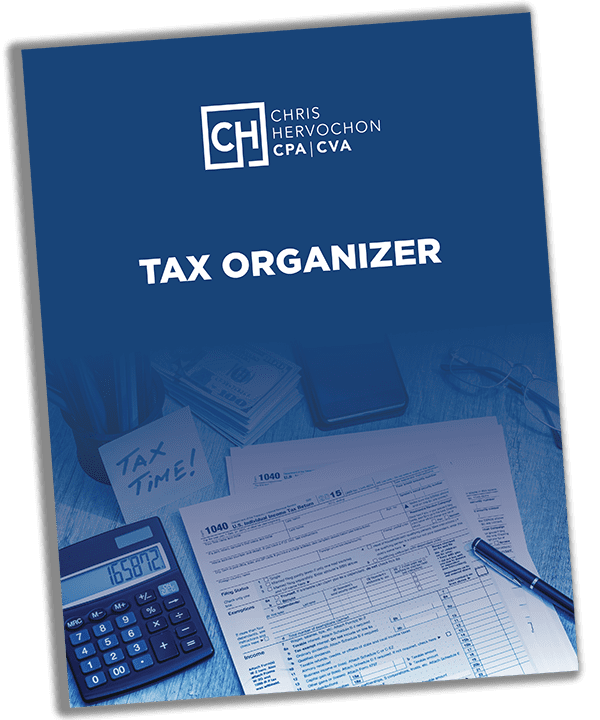Tax Planning & Preparation Packages
Yearly Prices
Compliance
We will get your tax return filed and analyze some tax strategies:
$1,500
- 1 Personal Tax Return
- Tax Return Review via Loom Recording
- Quarterly Estimated Tax Calculations — Safe Harbor Only
- Tax Optimization Checklist — Annual
- Quarterly Tax Savings Newsletter
- Tax Strategy Call — Annual
- Guaranteed Turnaround Times — 6 Weeks
- Tax Return Extension — Firm's Discretion
- Point of Contact — Staff Accountant
- Business Return — $2,000 a la carte add-on
Proactive
$5,000
- 1 Personal Tax Return
- Tax Return Review via Zoom Meeting
- Quarterly Estimated Tax Calculations — Safe Harbor Only
- Tax Optimization Checklist — Quarterly
- Quarterly Tax Savings Newsletter
- Tax Strategy Call — Quarterly
- Guaranteed Turnaround Times — 4 Weeks
- Tax Return Extension — Client's Discretion
- Point of Contact — Manager or Above
- Personalized Tax Plan
- Government Notice Response
- Email Support — Basic
- Business Return — $2,000 a la carte add-on
Advisory
$15,000
- 1 Personal Tax Return
- Tax Return Review via Zoom Meeting
- Quarterly Estimated Tax Calculations
- Tax Optimization Checklist — Monthly
- Quarterly Tax Savings Newsletter
- Tax Strategy Call — Monthly
- Guaranteed Turnaround Times — 2 Weeks
- Tax Return Extension — Client's Discretion
- Point of Contact — Manager or Above
- Personalized Tax Plan
- Government Notice Response
- Email Support — Premium
- Tax Audit Support
- Business Return — $2,000 a la carte add-on

What tax deadlines and extensions do you need to know?
Many tax deadlines fall in the first quarter. Historically, April has always remained important because it is the month when individual taxes are filed. The last day to file individual 1040 tax form is generally April 15th.
If your business is a C Corporation, tax returns are typically due on April 15th. For S Corporations, the deadline to file the income tax return typically falls on March 15th.
However, recent political events have caused tax deadlines to shift. That's where a CPA firm comes in. Our team can consult on which tax forms are due. We also can help you file for an extension, or calculate estimated tax payments, if required.
Do you know all the taxes you must pay?
(Some of these might surprise you)
For business owners who want to grow, this means dealing with more money. And typically, the more money you make, the more taxes you have to pay.

Income Tax
If you have a source of income, federal income tax is an inevitability for every individual in the United States. Apart from federal tax, 41 states require their residents to pay state income tax. Normally, you can file federal and state tax returns simultaneously.
States like Texas, Nevada, Washington, Alaska, and a few others don't have a state income tax. In comparison, New Hampshire and Tennessee only pose income tax on dividends and interest. Everyone from an individual to a business is liable to pay income tax.
For small businesses, income tax can be surprisingly tricky. For instance, many of the agencies that we work with are taxed as S Corps. S Corps come with a unique set of requirements and considerations, such as reasonable owner's compensation.
Sales Tax
If you are shopping in the United States, you may see sales tax levied on certain items. The sales tax is an important revenue generation source for states and municipalities.
Marketing agencies that offer pay-per-click (PPC) advertising services, such as Google Adwords, may be subject to sales tax. New Mexico, South Dakota and West Virginia, for example, implement taxes on these services, especially if you charge commissions or other fees for placing PPC ads.
Since Google generally does not charge tax on Adwords, some states require agencies to charge their clients sales tax. While some states don’t charge sales taxes on such advertising services, states such as California and New York charge taxes on certain qualified print materials and some finished artwork.
Property Tax
Business owners who own any type of real estate — such as an apartment, house, commercial shop, or a building — must pay property tax. The rate of property tax varies significantly from state to state with a rate dependent on the city, town, or county.
The property rate in different localities may differ because the tax is generally imposed on the value of the property. Property value is typically different from the market-value, which means that property owners may pay higher or lower tax based on the evaluation by authorities.
We take care of the tax forms and paperwork so you don't have to.
One again for all of the people in the back: Personal income and business income are regarded as two separate sources of income. Commingling funds is a common accounting mistake businesses make, and it posits a serious problem with legal implications. For instance, limited liability companies could lose their liability protection — due to “piercing the corporate veil” — because you’re exposing your personal assets.
Like everyone else, business owners and staff may be required to fill out the following employment forms:
Another common tax return form is form 1120 used by C Corporations for income tax. Unlike S Corporation, whose profits are passed through to shareholders, the profits of a C Corporation are taxed separately from its owners under subchapter C of the Internal Revenue Code. C Corporations are owned by shareholders with a board of directors that make decisions and oversee policies. Its profits are taxed separately from its owners under subchapter C of the Internal Revenue Code.
Independent contractors and freelancers are required to submit W-9 forms — which is a record of your name, address, phone number, social security number of tax identification number. Business owners need to hold on to W-9 forms when they hire freelancers, subcontractors or vendors. While the IRS does not require the W-9 form when it comes time to tax filing, agencies need the form on hand when they submit 1099 to record payments of $600 or more.
We keep track of all of your documents for tax preparation and planning
Our virtual accounting firm has a streamlined method for obtaining all of the financial and personal information — such as social security numbers and dates of birth of your family members — for tax times. Our virtual client portal allows for drag-and-drop uploads on a secure environment. We also have an online form to gather all of the pertinent information, step-by-step and at your own pace.
We need to know about any sources of income:
Additionally, we ask that you compile as much information that you can to increase tax refunds, such as IRA contributions, energy credits and student loan interest.
It’s also helpful to organize information about all of the taxes that you've paid, from state and local taxes to real estate tax and personal property tax. Do you have any other tax deductions and credits that could aid in a tax refund? This could include advance child tax credit, child care costs and education costs.





